Legion has always been a visually stunning show, and one that is experimental in its form. Back in Season 1, for example, we got the scene presented in the style of a silent film, which remains in my mind one of the most brilliant things that has ever been on television. But this has also been the case more subtly, from shots that are so beautiful you want to frame them and put them on your wall, to the way in which the aspect ratio is frequently changed for effect. Sam Esmail used this technique in Homecoming in a striking way, but also one that seems to be more consistent than what happens with Legion. Here there doesn’t seem to be a direct logic to how much of the screen a shot takes up, so much as it is a matter of feeling.
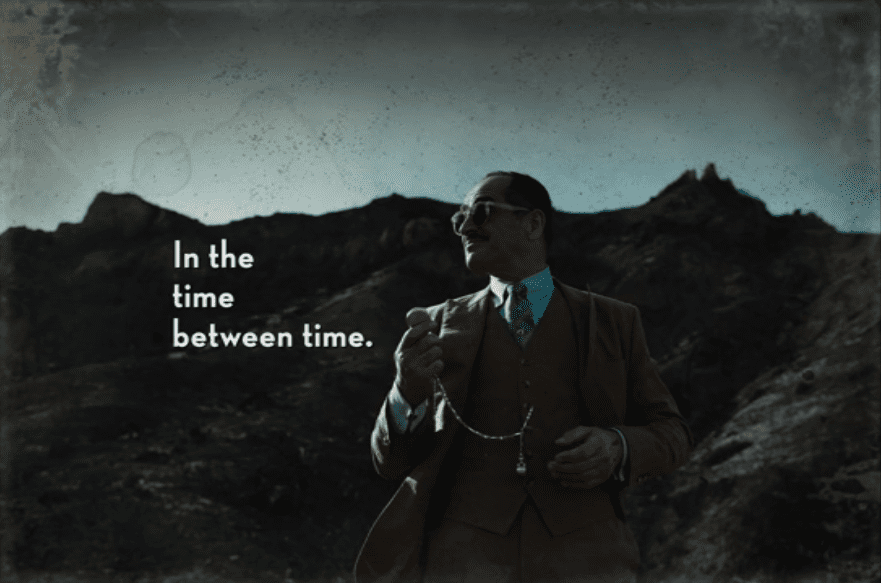
These quirks of visual style take a priority of place in Season 3 Episode 4, but in a way that is directly tied to the narrative. As the demons eat time, there are jump cuts and still frames that feed into the sense that something is wrong with the flow of things in a way that goes beyond the repetitions of dialogue that occur due to little time loops. Without these elements, the story presented in this episode might have seemed a bit cheesy. But with them—and the way they serve to characterize the time demons—it is brilliant and pretty horrifying.
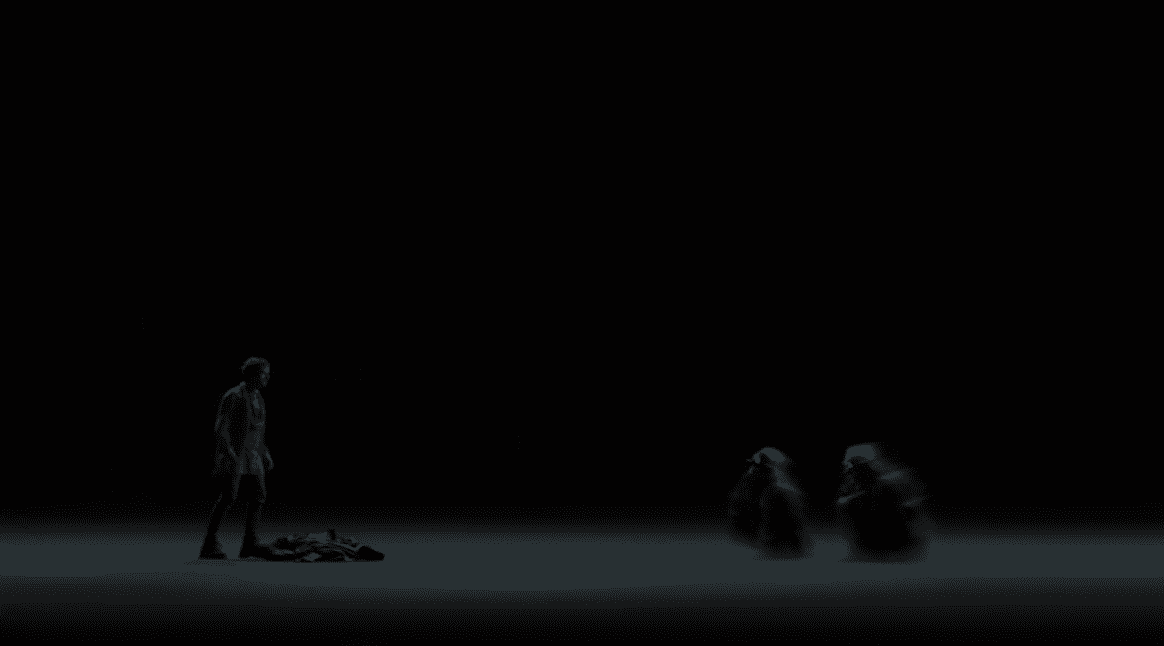
In the Future When There are Time Demons, Tell Me About the Time Demons
I have been wondering about the line about the risk of awakening the demon since we heard it on Switch’s tapes back in the season premiere. It was quick, but it seemed significant, and so I am glad to see that pay off here in Episode 4.
It would appear that David and Switch’s journey back in time to try and warn his parents about Farouk in Episode 3 did indeed wake the demon, or, rather, demons in the plural. What do they want? Are they malevolent or just hungry? Ptonomy will let you know in three years or so.
What is more clearly presented is the effect that their actions have on time, although the details of that remain less than perspicuously outlined by the end of the hour.
There are time loops, and jumps. Members of David’s cult get stuck in a state of frozen time. Syd interacts with her younger self. David ends up back in the camps with his mother. Lenny experiences the entire life of her daughter in a condensed fashion. Cary seems to have benefited from having a demon remove David’s influence.
How many of these things actually happened?
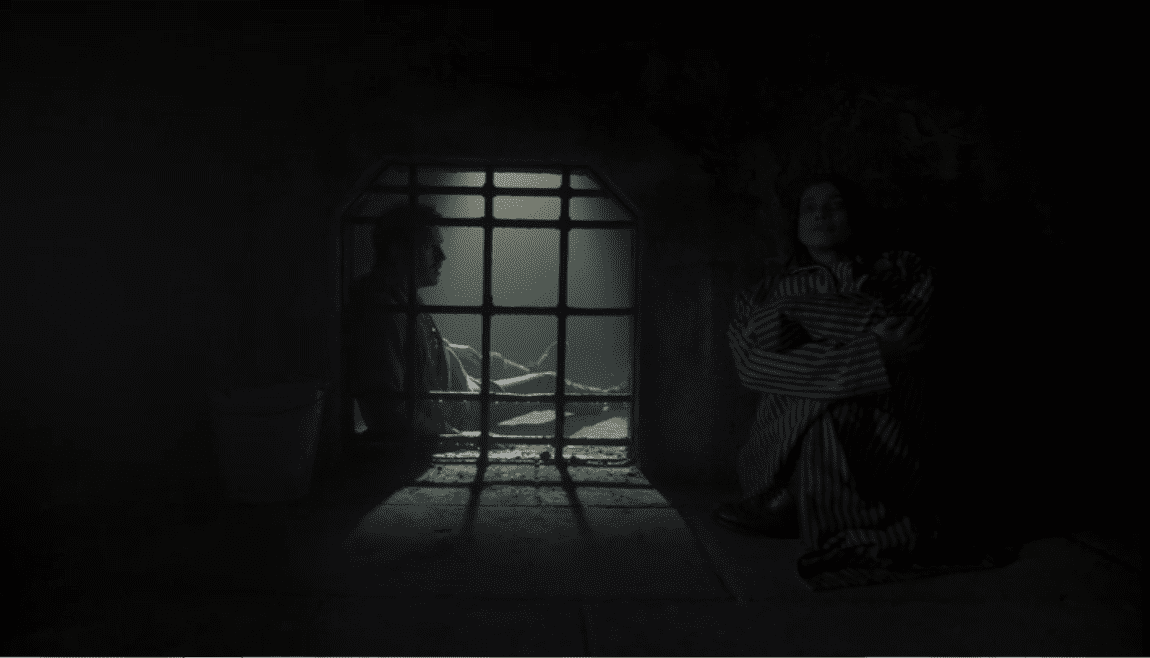
Unless we suppose that the demons have some further power related to mind control more than time, I would posit that they all did.
David’s interaction with Gabrielle is perhaps the most questionable, particularly given how it ended, but if the powers of the demons pertain solely to time, then the most plausible explanation is that he really was there, talking to his mother. On this reading, when he breaks out of what he claims to be a lie, he is rather moving the action to something like the astral plane, as opposed to dispelling an illusion.
And of course she doesn’t remember. We make an interesting mistake when we expect the characters in fiction to remember everything we know. For us, it’s a part of a narrative and is all imbued with significance. For them, it would be life, where all sorts of things slip away through the forgetfulness that comes with time.
Equally, Syd’s interaction with younger Syd devolves into a confrontation with a time demon, but do we think that the younger version of herself was just some mask that this demon wore? They wonder if they will switch places by touching, but perhaps it would be better to read this as their creation of a temporal paradox—and thus the demon’s appearance?
What happens with Lenny is perhaps the hardest, not just conceptually but emotionally. Her daughter, Violet, is born, Salmon disappears, and then the whole life of interactions between mother and child play out in the clock room. Why it would all be there, I do not know—any more than I know how these two women had a child, because I don’t think that has been explained—but the impact it has on Lenny is undeniable, and the absence of her pregnant lover at the end of the episode seems clear.
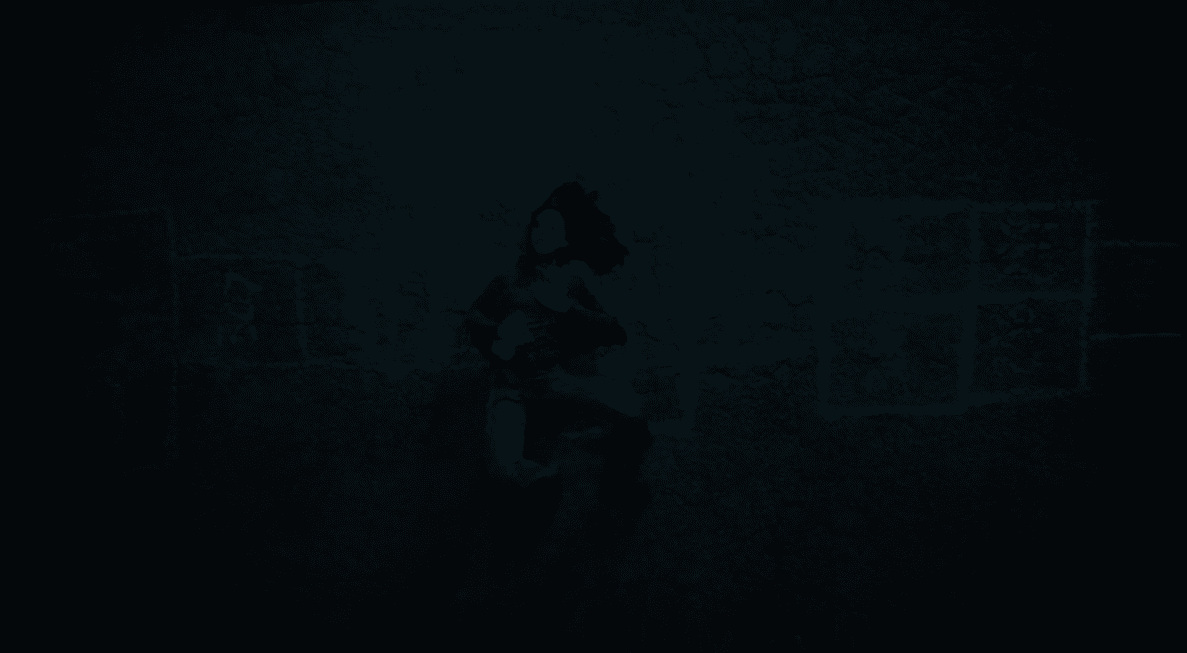
The way the demons eat time seems to be haphazard. What happened to Salmon, for example, and how is it that Lenny experiences her daughter’s whole life without aging herself?
The answer would seem to be that time is not a river, but a jungle. We saw this when David and Switch went back in time, with the jumps between events in the lives of Charles and Gabrielle occurring in a non-linear way. Moments in time relate to one another not like points on a line, but like notes of music, perhaps. One event resonates with another, and this defines a life—not the one thing after another of the actual day-to-day, but a kind of virtual structure of meaning.
So the time demons have eaten that part of Lenny’s life that included her daughter. It’s gone. She got to see it go, and, it seems, “remembers” it.
The philosophy of time at play here is convoluted at best. It reminds me of the way Gilles Deleuze articulates three syntheses of time in Difference and Repetition, but these are some of the most difficult passages in his work, and hard to distill into something that it makes sense to include in a fairly short piece analyzing an episode of a TV show.
The key point would be that which Legion has hit on by referring to time as a jungle. If the linear flow of time is a matter of going from A to B to C, the past is defined by relations between A and A’, B and B’, and so on. These different events resonate with one another, as we see with the various moments between Lenny and Violet. Of course this makes the most sense in terms of personal memory—one break-up resonating with another, for example—but Deleuze suggests it as a structure of Being itself, and Legion seems to be doing the same thing.
This is perhaps why Episode 4 is interrupted by a scene from The Shield. As the demons eat time, we are glitched into a different time as viewers ourselves for a moment: one where the show currently airing on FX is a different one from the past.

This also potentially explains how Cary is released from David’s spell: it was just a matter of eating the time that led to his hypnotization. It’s not clear why it didn’t eat more, though. Do the time demons have an agenda, or are they just hungry?
Ptomony will let us know in a few years.
Regardless, Cary’s release leads to a nice chain of events where he interacts with Switch. When he finds her she is hiding with a giant toothbrush (which I guess is for the huge pig?) and presumes that she has equally been manipulated by David against her will. What we have seen makes that a pretty questionable assumption. Switch has seemed to be helping David of her own accord, for whatever reason.
Unless there was more to those flyers than we were led to believe? I can’t stop thinking about the fact that one of them warned against those who would tell you what your name is, and yet one of the first things that happens when Jia-Yi arrives to David’s compound is for her to be told her name is Switch.
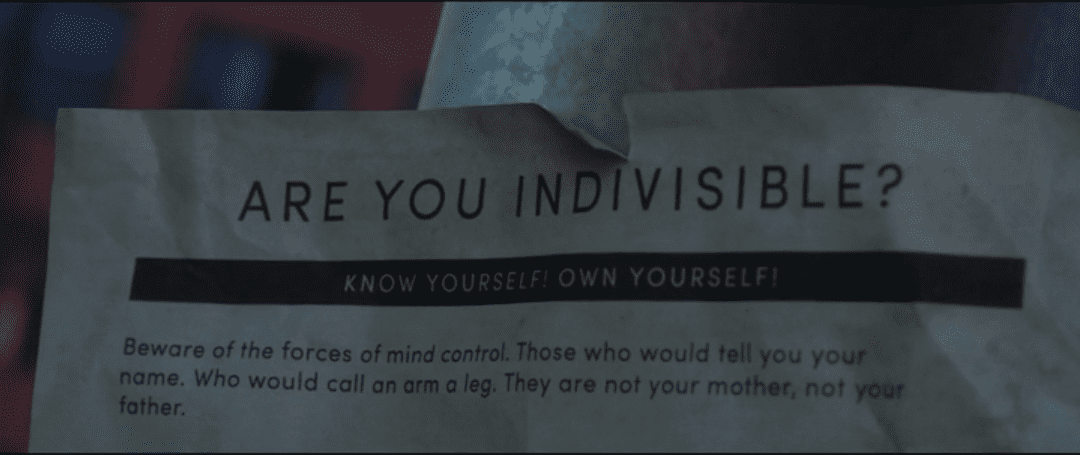
Why Did He Turn Me Around?
One of the most powerful interactions in the episode occurs between Syd and…Syd. A younger version of Sydney Barrett shows up, and though, as I said above, I take this interaction to be something that actually happens (as opposed to some illusion in Syd’s mind, or something like that), it is nonetheless something that gives more insight into Syd’s character than anything else.
Describing the events we saw previously, wherein she took over the body of her mother in order to have sex with her lover in the shower, the young Syd wonders at what happened.
And, sure, the whole thing was pretty fucked up, as this guy thought he was having sex with the adult woman he was involved with only to all of the sudden find himself inside of her teenage daughter (I’ve always thought the way they presented this, where Syd had her clothes on, didn’t make any sense and was some kind of Hays Code bullshit; the version in my head is way more powerful), and you could blame Syd for allowing him to be arrested for it (though what could she really have done to explain her powers?), but what we get here is an insight into how it affected her.
He turned her around, and put her face to the glass. She thought sex was about love.
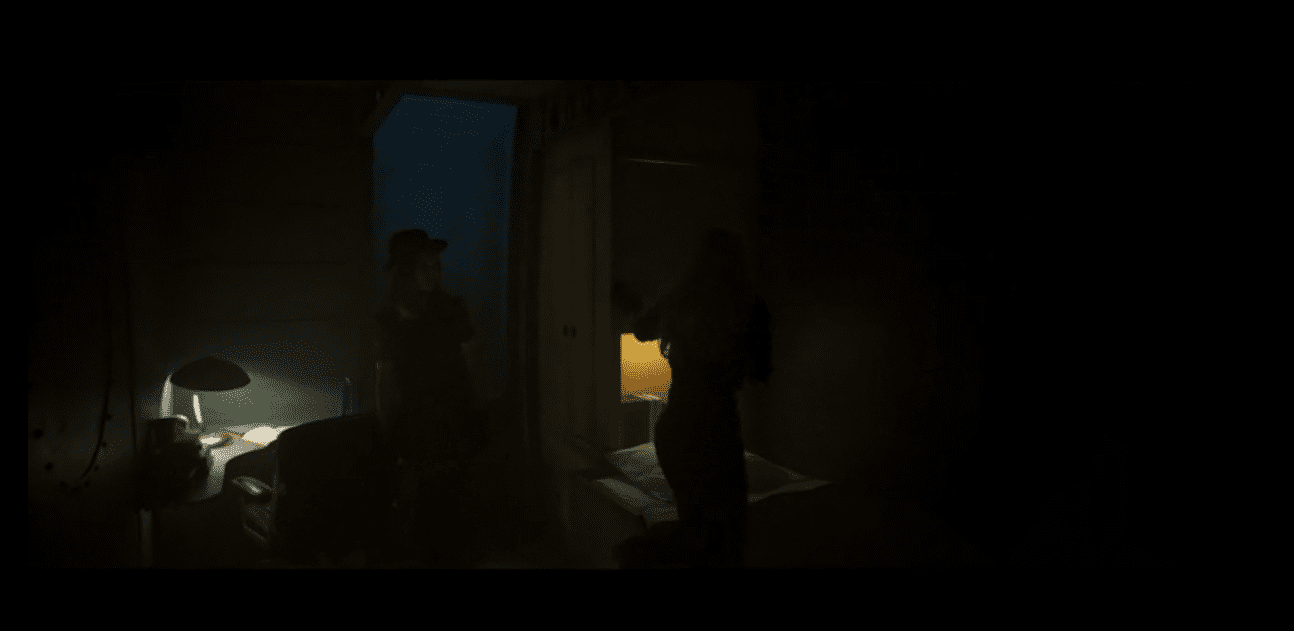
Here, it was about power. And when Syd explains to her younger self what went wrong with David, she uses the same phrase—“he turned me around”—but in a metaphorical register this time. He ultimately didn’t respect her autonomy, or love her as an equal. He used his powers on her to change her mind. And it doesn’t really matter if he was “correcting” Farouk’s influence; it is the violation of her autonomy as an individual that defines the wrong. He turned her around.
We’re Scared Daddy! Make Us Feel Good? Please?
I was worried about whether Legion knew what it was doing as it headed into Season 3, but halfway through I am feeling confident about its direction. The decision to make David the leader of a cult was inspired, as it precisely provides a way to get at the essential ambiguity about his character at this point.
On one level, he is trying to make the world a better place by counteracting the Shadow King’s influence and alleviating the suffering of his followers. But on another, it is really all about him, and his narcissism is on full display when we see those levels intersect in his thinking.
I, for one, found nothing creepier in his behavior than when he referred to himself as “daddy” while addressing his followers.

This is again about him exerting his power, but he has chosen to inflect it in familial terms, as though he loves them. He says he will protect them, but he doesn’t, really. He doesn’t really care about them. He doesn’t really care about Switch and the way time travel makes her lose teeth. He only cares about the purpose he wants her to serve. And I don’t think he really cares about Lenny, either, as the way he checks in with her at the end of the episode is rather thin, and we’ve already seen him directly manipulate her mind this season.
At the end of the day, it seems that David only cares about himself, however much he may at the same time be deluding himself into thinking that his concerns are about the well-being of the world.
And I think this tracks. If Season 3 has been about turning him into a villain, it wouldn’t have worked if it had been too straightforward—if, say he all of the sudden was hell-bent on destroying everything. No, he has to believe that what he is doing is right, and we have to be able to at least somewhat understand where he is coming from, for this to work and be in line with the character we have known all along.
I think they are pulling it off, but we’ll see where this all goes. The time demons do seem to have pushed David to the point where he is about ready to say that anyone who isn’t with him can just go ahead and explode in a fiery death.
But at least the show has taken us to this point in a way that makes sense. If the goal was to make David a villain, I think they are succeeding. Now I just hope they haven’t forgotten that Farouk is one, too.


When Syd changed back in the shower, she went back to her body which had clothing on. She took off her mother’s robe when she entered the shower. It is a little weird to take over two people’s sexual autonomy and then get upset it was not romantic enough. Ugh.
With Lenny, she got New Jeanine/Salmon pregnant. They had sex and then Salmon said they were going to have a little prince, which was a nice tie into the Shadow King. I think this is because the character Lenny was originally a guy and the creators just left Lenny’s lines and arc in place without changing to a female. Liking shows like Twin Peaks, I just take it for what it is: Lenny and Salmon made a baby Violet, which is oddly enough the colors blue and red mixed together. I listened to a podcast that said David was the father but I am unsure if they were watching the show closely. Salmon says she has been penis free for 25 years and is the pregnant virgin. Why would Lenny raise David’s child? I do not get what people would think this. Two girls made a girl…it is science. 🙂
I love this show but my critiques with it are twofold: One, that they succumb to the “girlfriend in the fridge” trope twice, with Amy and Salmon, two females characters that leave the show but come back just to die and give Lenny or David emotions for revenge and remain sort of 2D. Amy’s husband too. Two, still do not understand why Syd’s self absorbed “me first” ego is heroic while David’s ego which is about the same is unredeemable villainy. Not sure why Syd’s assaults of people’s sexual and physical autonomy is not on par with David’s. It is just said “you were young” and brushed under the rug and she was 16 when it happened, which is old enough to know right from wrong. Again, it males her and David about the same, since he manipulated her mind but he had a history of mental illness, had the SK in him, spent six years at Clockworks and would be as mentally fragile as a 16 year old. Anytime David does something wrong, Syd does something in kind. So I rack my brain trying to get if things are done my a white male, it is evil and unredeemable, but a white woman can get her younger self drunk, kidnap her boyfriend in the present from the future then complain her left her and shoot him, not to mention physically assault him, lie and betray him, but that is all fine and heroic. I am a woman too, so I am not rallying between David and saying “evil woman will not help my anti hero” like men viewing Breaking Bad did with Skylar. I just felt Syd was always for herself and was a product of bad female character writing, where all she talks about are men, yet she is presented as a feminist that could easily just do her own thing and be more interesting. Same with Melanie Bird.